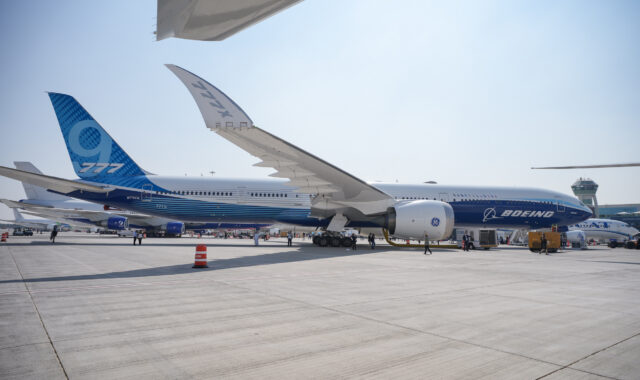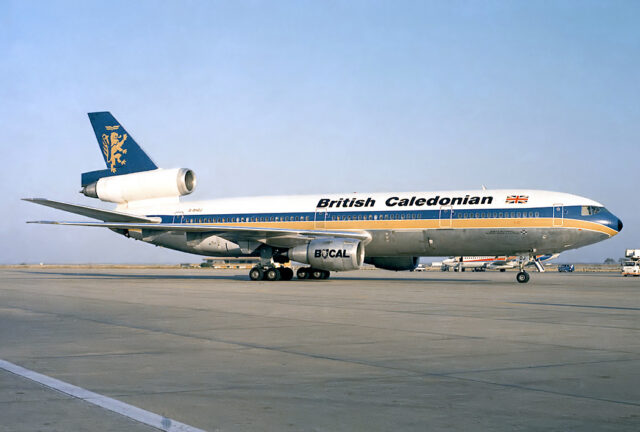Hidden disabilities: Are airlines really accessible for all?

August 23, 2025

Ask anyone with a disability and the response is generally the same: the aviation industry continues to fall short when it comes to ensuring accessibility for all.
However, momentum is building as airlines continue to adopt new measures to make air travel easier for passengers with visible and hidden disabilities.
Virgin Atlantic announced this week the extension of its partnership with the Women Over 50 Film Festival (WOFF) to bring a new season of dementia-friendly short films to the skies.
The collaboration, which originally launched in June 2024, integrates a curated collection of films into Vera – the airline’s inflight entertainment system. The collection of short films offers soothing and inclusive content for customers living with dementia, as well as their families and carers.

Over 60,000 passengers on Virgin Atlantic flights have already enjoyed the airline’s dementia-friendly content, which includes Call of the Cranes, Magicland and the Piano Forest.
The response has been “incredible”, said Sharon Noyau, Manager IFC at Virgin Atlantic. “Passenger feedback has highlighted how meaningful it is to have content that can be enjoyed by everyone, regardless of cognitive ability. We’re proud to lead the way in inclusive inflight entertainment.”
Scale of the accessible aviation market
The World Health Organisation (WHO) estimates that one billion people globally live with some form of disability. They represent a significant and growing segment of the travel market.
In the UK alone, there are as many as 16.1 million people currently living with a disability, according to Skyscanner. Meanwhile, in the US, more than 25 million adults with disabilities report travelling regularly.

With an ageing global population projected to reach 2.1 billion over 60 by 2050, demand for accessible mobility solutions for air travel will only intensify.
Practical innovations for passengers with reduced mobility
Air travel can be daunting for any passenger. But for those with disabilities, including physical impairments, autism, dementia or chronic illnesses, the process can be overwhelming.
For passengers with reduced mobility (PRM), airlines and airports are adopting new technologies such as Eagle hoists, advanced boarding chairs and trials of power-assisted wheelchairs designed to fit aircraft aisles. The objective is to reduce discomfort and the risk of injury during boarding and disembarking.
American Airlines, Delta Air Lines, Emirates, British Airways, Singapore Airlines and Air France are among the carriers already offering wheelchair assistance, priority boarding and inflight services tailored for PRM.

However, challenges remain. UK Charity Aerobility’s CEO, Mike Miller-Smith MBE, who has muscular dystrophy and permanently uses an electric wheelchair, argues that lived experience is lacking across the sector.
“It is widely apparent there just isn’t that lived experience in organisations across the industry that are expected to deliver services for PRM, non-visible disabilities and sensory impairments,” he explained.
He added that outsourcing PRM services to third parties, which is common among airlines and airports, complicates accountability when equipment is damaged during transit or passengers feel they have been mistreated.
Campaigns such as Air4All are pushing for further change, including enabling passengers to remain in their wheelchairs throughout the entire air transport journey.
Emirates targets autism certification
In January 2025, Emirates began the process of becoming the world’s first Autism Certified Airline.
The accreditation, awarded by the International Board of Credentialling and Continuing Education Standards (IBCCES), will follow the completion of dedicated autism awareness training for Emirates’ 30,000 cabin crew and ground staff.
The training programme includes information about autism awareness, misconceptions, customer challenges and practical support for travellers depending on their individual needs.

The airline also plans to roll out new standards and services that will improve the passenger experience both on the ground and in the air for customers on the autism spectrum. This includes the introduction of neurodiverse sensory products for customers on Emirates flights.
The sunflower lanyard programme: A first step to more inclusive air travel
Adoption of the Hidden Disabilities Sunflower Lanyard programme continues to grow.
In 2024, Air Canada became the first airline in North America to adopt the lanyard programme to better serve customers with non-visible disabilities.

Speaking at the time, Tom Stevens, Vice President, Customer Experience and Operations Strategy at the airline, said:
“Our customers make over 3.1 million accessibility requests each year, and this initiative further demonstrates our commitment to improving accessibility.”
The airline has also created a Customer Accessibility Advisory Committee to help identify barriers and develop solutions.

Aer Lingus is one of the more recent airlines to adopt the programme (having joined in February 2025), with training designed to help “equip staff with the awareness and tools to better assist passengers dealing with autism, anxiety, chronic pain, ADHD and other less apparent challenges.”
Frontline employees will receive specialised training to recognise the Sunflower symbol, which can be worn as a lanyard, badge or wristband, and respond appropriately, whether through extended boarding time, clearer communication or other accommodations tailored to individual needs.
Developing understanding across the aviation industry
Despite progress, gaps remain. Aerobility’s Advocacy Manager, Harvey Matthewson, who has cerebral Palsy, highlights the everyday challenges he and many others with hidden disabilities face when flying.
Using plastic or wooden cutlery, navigating washrooms, and operating self-service machines are often tasks he struggles with due to balance issues and fine motor skills.

He argues that employing staff of all abilities across aviation will be key to building understanding and meeting all passenger needs.
Aerobility is collaborating on the Equal Skies Charter, which aims to increase disability employment in aviation and aerospace.
Regulatory pressure for airlines
Regulatory scrutiny is putting pressure on airlines and airports to improve their performance when it comes to ensuring accessibility.
In the US, the Department of Transportation (DoT) has introduced rules on handling mobility devices, including fines for damage and stricter reporting requirements.
Trials of onboard wheelchair restraint systems are also backed by regulators, signalling that accessibility innovations could become mandatory.

In Europe, airlines and airports are compelled to provide free assistance to PRM. However, the European Commission is currently reviewing these standards with a focus on ensuring consistency across member states.
In the UK, the Civil Aviation Authority has prioritised accessibility in its consumer strategy. It publishes an annual league table that ranks airports on how accessible they are for PRM.
The business case for inclusivity
For airlines, the commercial opportunity is clear: accessibility is not only a regulatory requirement but also a business opportunity. Those investing in inclusive design, training and passenger experience are positioning themselves to capture a loyal and growing customer base.
As one passenger, Dr Ipsit Vahia, MD, Chief of the Division of Geriatric Psychiatry at McLean Hospital, noted after experiencing Virgin Atlantic’s dementia-friendly inflight content on a recent international flight:
“Each of the nine short films was designed to engage a person living with dementia in a calming way, and could be played on loop, taking rapid forgetting into consideration.
“Being seven hours into a nine-hour flight, it made me think about what it is like for someone with dementia and their carers to take a long-distance flight. In that moment, I felt relieved on their behalf that their needs were considered by the airline.”
For airlines, creating that sense of understanding and recognition to ensure they accommodate all passenger needs may prove one of the most valuable investments they make in the coming years.
















